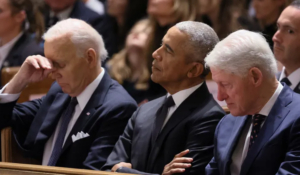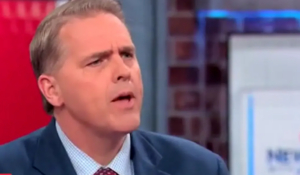There comes a time in every American’s life when the world starts to look a little different. Maybe it’s the moment you pass on the late-night fast food run that used to define your weekends, or when you start checking the barometric pressure before committing to weekend plans. For some, it's when you realize the weather app is now the most-used one on your phone. But for me, that moment came when I found myself genuinely concerned about the wellness of the on-air personalities at MSNBC.
Yes, MSNBC. That bastion of progressive punditry where feelings often masquerade as facts, and narratives occasionally spin faster than a Texas tornado. And yet, here I am—hovering dangerously close to a wellness check for Lawrence O'Donnell, the longtime host of The Last Word.
Last week, I raised some polite concern here at RedState about his unexpected absence from the airwaves. O'Donnell had previously announced to Rachel Maddow that he needed a break—he was exhausted, apparently, after just 52 days of Trump’s second term. (To be fair, Rachel had logged 100 straight days herself, which either makes her a workhorse or in serious need of a hobby.) O'Donnell claimed he was wiped out and just needed a breather, promising to return and soldier through the rest of the first 100 days with his MSNBC comrades.
But then… crickets.
No fanfare, no update, no return. The
conspiracy wheel began to spin. Was this The Joy Reid Treatment, quietly phased out without so much as a press release? Was the Last Word going to be… well, his last word?
Turns out, not exactly.
New reports reveal that Lawrence might not have been felled by exhaustion after all—but rather, he’s at the negotiating table, trying to secure a $25 million deal, à la Rachel Maddow. You read that right: $25 million, with a generous side of time off, thank you very much.
Well, now. This isn’t about Trump fatigue or an existential crisis sparked by a Republican resurgence. This, my friends, is about cold, hard capitalist negotiation.
Which begs the question—has Lawrence O’Donnell joined the club? You know, the one that recognizes market value, competition, and negotiating power without invoking the ghost of Karl Marx? If Lawrence sees Maddow—who works once a week—as worth $25 million, and he’s clocking in five days a week, he’s doing what any rational capitalist would: demanding a bigger piece of the pie.
Now, I’m not saying he’s about to register Republican, but we may be witnessing the first stages of a conversion-by-necessity. The “exhaustion” narrative crumbles under the weight of a multi-million-dollar contract push. That’s not burnout. That’s leverage. And that’s not emotion—that’s strategy.
So, here we are: watching MSNBC hosts wrestle with burnout, audience erosion, and compensation envy. And who can blame them? When your network runs almost exclusively on Trump is the apocalypse energy, it’s bound to wear thin—on hosts and viewers alike.







